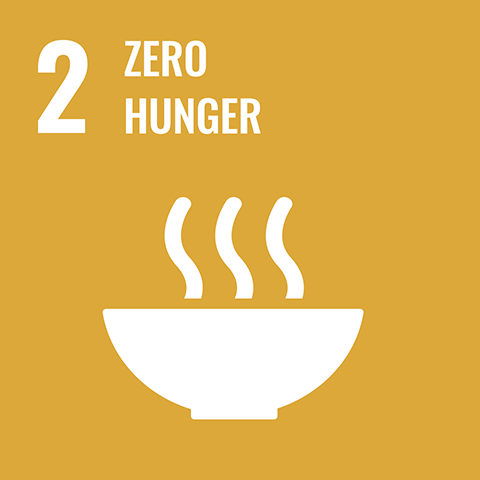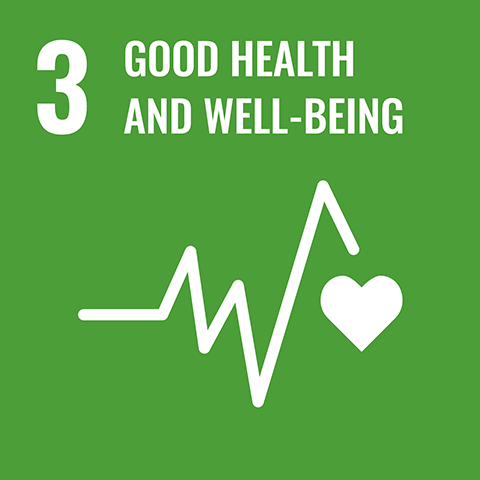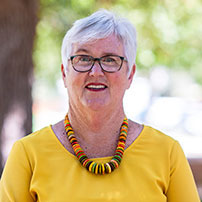Aged Care
Understanding the experiences of older people and including them as partners in service provision.
UN Sustainable Development Goals
This research supports United Nations Sustainable Development Goals:



Rural older people are very connected to their communities but there can be a lack of services and residential care to keep them where they want to live. To address this problem, Charles Sturt University researchers investigated the experience of ageing for people living in rural Australia.
The findings showed that when older people cannot access services and care locally, this can have devastating impacts on them, their families and their communities. The participants reported feelings of disconnection, isolation, depression and distress. Importantly, the research demonstrated older people who moved from a small, rural aged care facility to a larger centre died prematurely.
“Understanding the needs of older people and re‐connecting them to communities where they live is vital to improving health and wellbeing of individuals and improving the aged care system”
– Dr Maree Bernoth
The research
Research associated with older persons accessing residential care and care facility nutrition and hydration concerns used interviews with participants who shared their perspectives when friends or family members were placed in a residential care facility. The new aged care assessment model model ‘Staying Active, Staying Independent’ (SASI) was developed following interviews with older persons and a focus group of aged care workers. SASI asked the older person what was most important to them and initiated strategies to enable older people to achieve the goals they themselves set.
Program highlights
- Research identified that older persons feel isolated when forced into residential aged care and that once in care nutrition/hydration were often inadequate.
- Research findings contributed to the Department of Health and Ageing changing aged care regulations.
- The research participated in the development and evaluation of a new assessment model ‘Staying Active, Staying Independent’ that in contrast to previous models, asks older people what they want from community service providers.
- The new SASI assessment model allowed identification and repair of issues that reduced quality of life for older persons.
Program impacts
The research found wide variation in the quality of care in aged care facilities. For example, it was identified that inadequate access to nutrition and hydration by some older people in residential aged care led to malnutrition and dehydration. Family members shared traumatic recollections about the inability of relatives in residential care to physically access food when insufficient staff were available to assist them, where staff were too busy or where the food was of poor quality.
The research team provided a submission to the NSW Government Inquiry into Registered Nurses in NSW Nursing Homes, which led to the Principal Investigator (Prof. Maree Bernoth) being invited to appear before the Inquiry. Prof Bernoth’s findings on the clinical care of residents were cited 47 times in the Inquiry’s final report and ultimately led to the Department of Health and Ageing changing the guidelines for nutrition and hydration in aged care. Prof Bernoth also presented the research findings to the Australian Law Reform Commission Inquiry into the Prevention of Elder Abuse.
The SASI assessment model asked the older person what was most important to them and initiated strategies to enable older people to achieve the goals they themselves set. Quality of life improvements followed SASI's implementation. For example, loss of mobility prevented an elderly woman from meeting her sister at the Hobart Theatre, which was a routine activity prior to her functional decline. SASI identified that physiotherapy was required, and after treatment, the elderly woman regained mobility and resumed visiting the theatre.
Staff biographies

Associate Professor Maree Bernoth
Charles Sturt University
Associate Professor Maree Bernoth is an academic in the School of Nursing, Midwifery and Indigenous Health at Charles Sturt University in Wagga Wagga NSW, Australia. A/Prof Bernoth has been involved with the residential aged care sector as an academic and a Registered Nurse for 32 years. She has undertaken extensive research and practice development projects in the residential aged care sector, and has led a number of research teams exploring rural ageing, mentoring nurses, partnerships and elder abuse.
Funding and collaborators
Improving outcomes for older persons resulted from two research programs.
- Research associated with older persons accessing residential care and care facility nutrition and hydration concerns was funded by Charles Sturt University and conducted by Prof. Maree Bernoth, A/Prof Elaine Dietsch, and Dr Carmel Davies.
- The SASI assessment model was developed in collaboration with the Hobart District Nursing Service who also funded the research. Charles Sturt University researchers Prof. Maree Bernoth, A/Prof Oliver Burmeister, Prof. Mark Morrison and A/Prof Zahid Islam conducted the research.
Charles Sturt University aims to create a world worth living in
“The challenge of aged care abuse is a passion for Dr Bernoth. In being able to change attitudes of the Facility Providers, Clinicians and staff to see better outcomes in care provided for the elderly and their families”
M/s Mardi Walker
Practice Nurse and aged care abuse advocate
